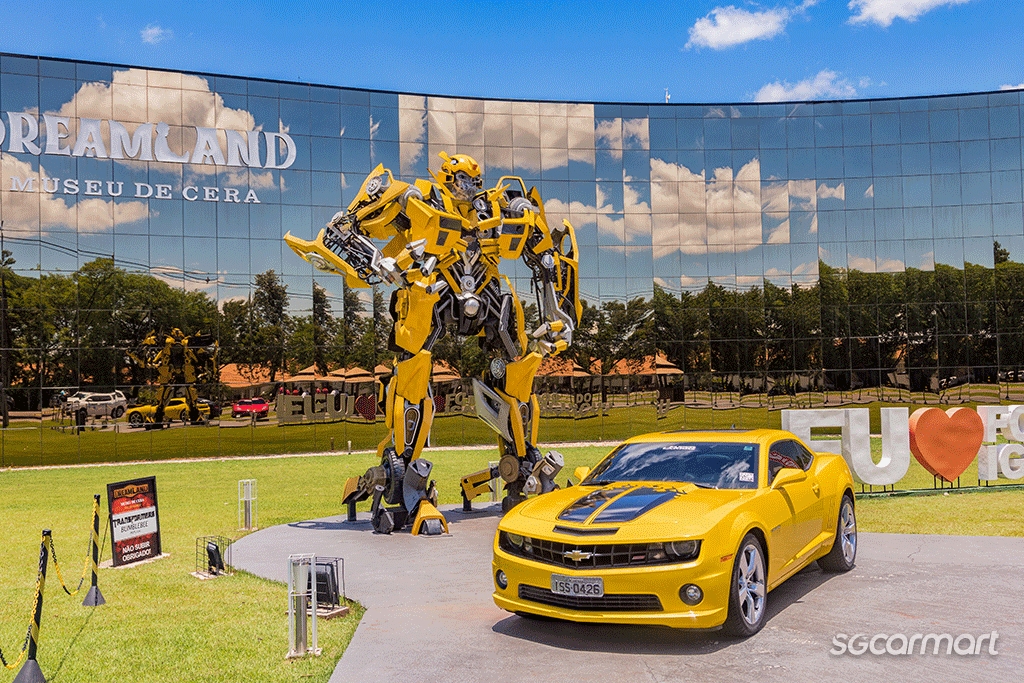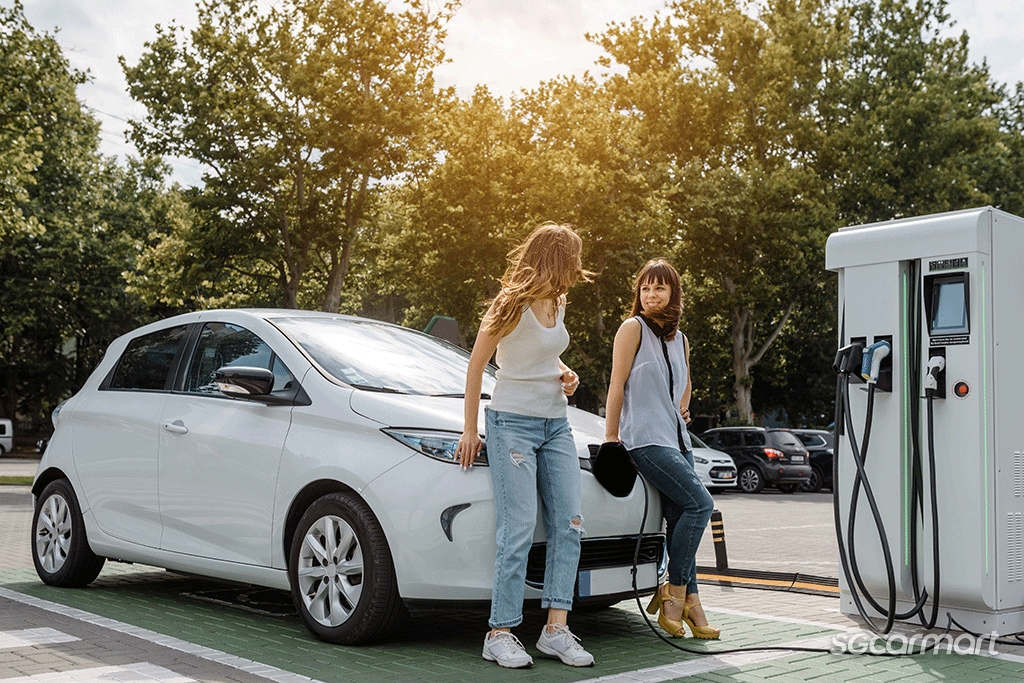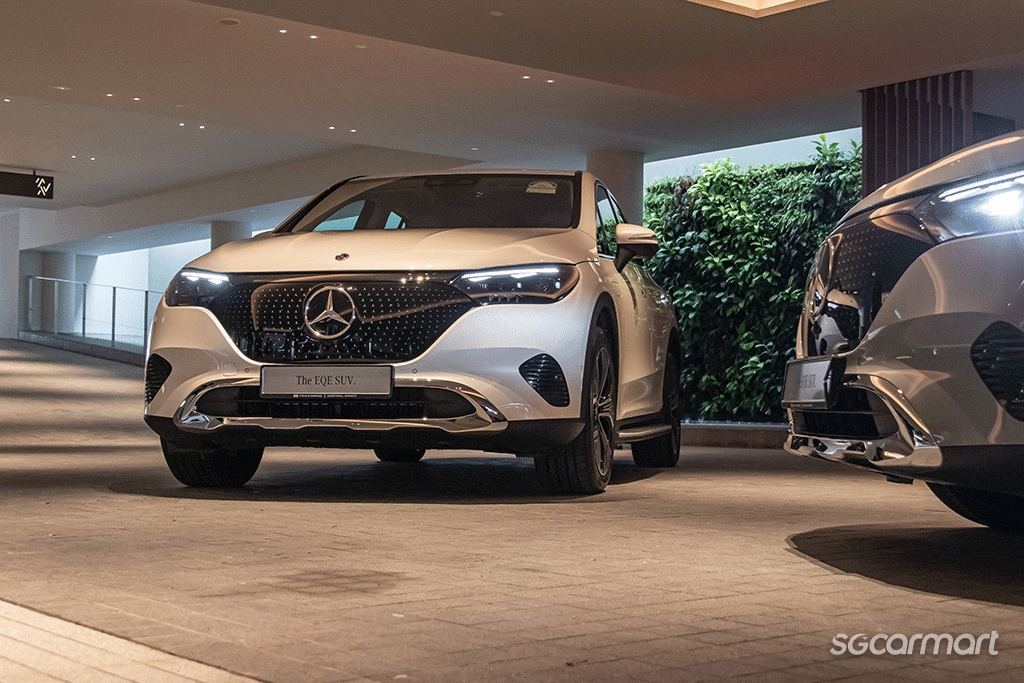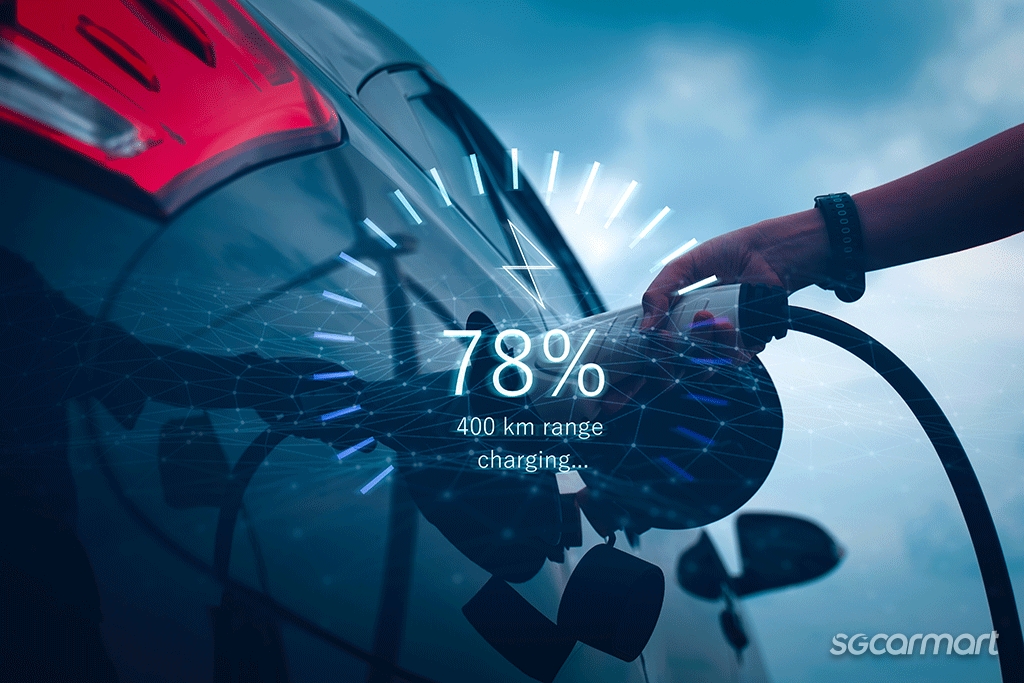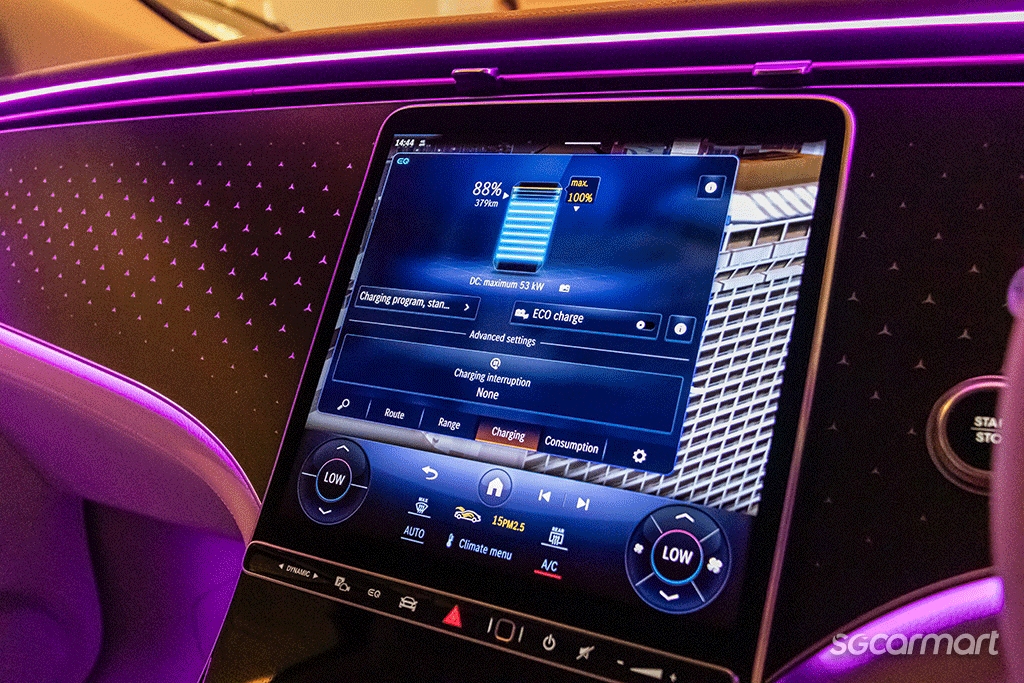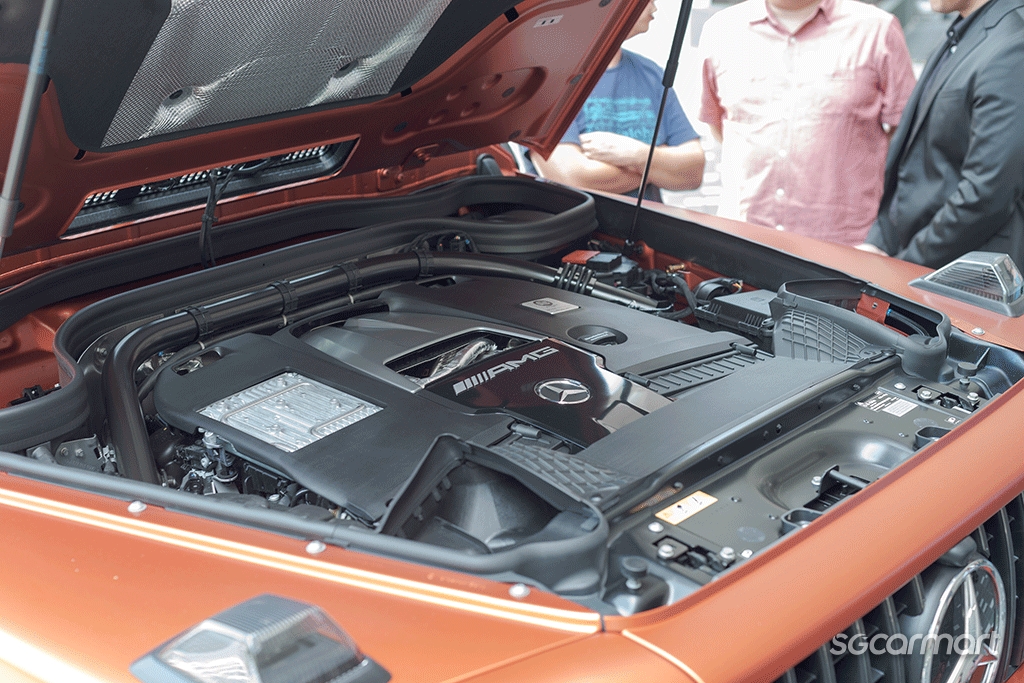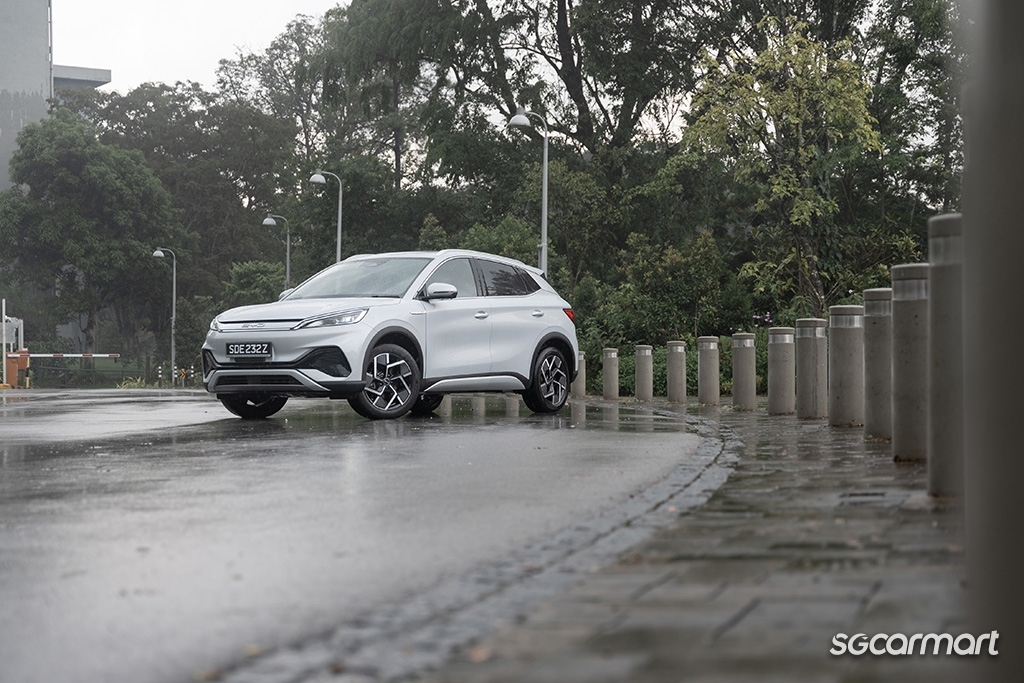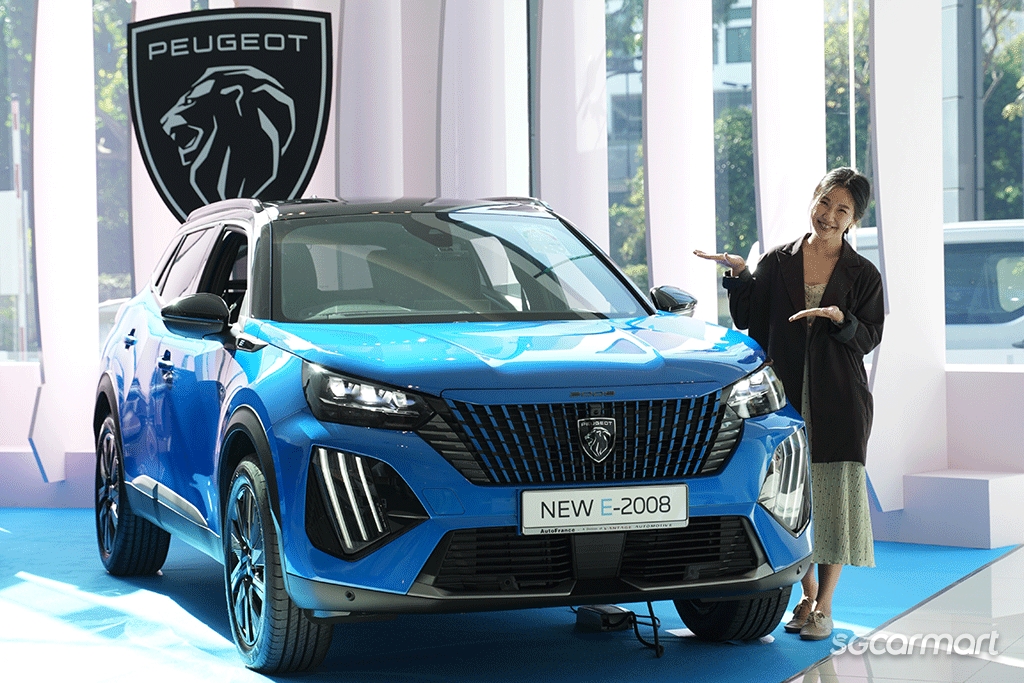Electric vehicles: Humans in the form of machines
22 Mar 2024|2,246 views
"You will always be my friend, Sam." Bumblebee had said to Sam Witwicky in the movie, Transformers: The Dark of the Moon.
As we all know by now, Transformers is a tale that unravels into something bigger when Sam - who's only a high-school student - buys his first car. Except, it isn't a car but an autobot with a cute name: Bumblebee. It also talks and feels like any sentient being.
It's so wild to even entertain the thought that machines could be so similar to us, let alone be our friends. In a fictional world, this would make sense; we could dream up vehicles that kick into life and tower over skyscrapers, have self-awareness and ache when they are hurt.
They might never come alive in our reality, but that doesn't mean these machines don't bear resemblances to people. Take for instance electric vehicles (EVs), which in my opinion, are far more like us than we think.
Whether you're an expert when it comes to cars or an amateur like me, EVs are equally new and unfamiliar to any of us. In my own attempt to understand them better, I couldn't help but notice similarities between us and EVs.
And that tends to be a kind of human truth that I can't just let go of. For sure, EVs are incapable of making conversations but really to me, they are humans disguised in sheets of metal.
Recharge for a longer journey
Let's first talk about the ingenious ability of EVs to regenerate energy so the vehicle stays powered for as long as possible. This is known as regenerative braking.
It's a system that recaptures much of the kinetic energy from braking and converts it to electricity, which recharges the car's batteries. This allows the EV to travel for longer distances - also referred to as range - without having to be plugged in to a charging point.
Regenerative braking can offer small boosts to an EV's operating range just as how taking occasional breaks allows us a runway to go on for longer
Apparently, these small boosts in battery range can build up and improve efficiency over time, especially if used regularly. In some ways, this isn't unlike how we all require some recharging of our social batteries from time to time.
No matter where you stand on the extroversion scale, you're bound to need occasional breaks from the stressors in life or incidents that dampen your spirits. When we take time for ourselves, we rejuvenate and allow ourselves a runway to go on for longer.
Some juice up faster, some slower
What deepens the parallel I draw between EVs and humans on the front of our (re)charging needs is how some of us replenish our energy faster than others. We could take a few hours to recover from a bad event, or we could take days.
It's as though some of us re-energise with Alternating Current (AC), and some of us via Direct Current (DC). To put it simply, AC charges up an EV slower than DC does because it's an electrical current that switches back and forth at regular intervals; DC, on the other hand, travels only in one direction to deliver electricity.
Like EVs, different people recharge at different speeds - some quicker, some slower. This, by the way, does not make us any better or worse. It's just who we are and how we're wired.
The obsession with being efficient
There is perhaps nothing more human about EVs than their programmed ability to utilise the energy stored in their batteries as efficiently as possible.
Unlike Internal Combustion Engine (ICE) vehicles, a greater focus is being placed on converting as much electricity input to move an EV. These battery-powered machines have, on average, an efficiency of about 80% relative to a mere 35%-40% in ICEs. Also not forgetting the constant drive to improve the aerodynamic design and even tyres of electric cars.
Why this obsession for EVs to be efficient?
For this, we'll have to turn to the construct of modern lives for answers. Day to day, we are pressured to complete as many tasks as possible on the limited amounts of energy we can muster. Finish X number of tasks in under 8 hours of work, feed the baby while the washing machine runs its laundry cycle, etc...
This human preoccupation with efficiency is taken as a hallmark of successful, fulfilling lifestyles. It therefore doesn't come across as a surprise for us to measure how well-performing an EV can be based on its efficiency. The more efficient an electric car is, the better it is perceived to perform.
Not all that different
It's clear that EVs are the automotive future. In some fundamental ways, they might operate slightly differently from ICEs, but look closer and you'll realise they aren't all that unalike what we are used to.
This reminds me of the changes that accompany the birth of every new generation. Take the example of Gen Zs who are striding their first steps in the corporate world, cohort by cohort.
These young professionals are redefining workplace communication and culture with their interesting linguistic habits - slay, class, no cap - which probably sound odd and contextually puzzling initially. With some time and effort (read: Googling) though, it's really not that hard to understand the meaning of these slang words.
All we're saying is if you look beyond the peculiarities of anything new, you might be surprised at how quickly you habituate to them. EVs are mobility enablers and Gen Zs, our peers and future leaders.
We are them, and they are us
The diversity of this breed of vehicles is enough to liken them to our kind. I've always known EVs to comprise Battery EVs (BEVs), Hybrid EVs (HEVs), and Plug-in Hybrid EVs (PHEVs). But recently, I also came to learn of the existence of Fuel Cell EVs (FCEVs).
This tells us that there are many more of them out there than we might care to know. Some could be research in the works, others spin-offs of existing variants. Globally, Statista says that some 18 million BEVs were on the roads in 2022. They are plenty and just as varied as people.
So before we limit ourselves to thinking of EVs as mere next-generation vehicles following a worldwide phase out of ICEs, why not think of them as another iteration of us?
In Optimus Prime's words to his human friend, Sam, he said: "Remember this: You may lose faith in us, but never in yourselves." We might not believe in non-sentient machines but we should never lose conviction in our people, no matter what form they take.
"You will always be my friend, Sam." Bumblebee had said to Sam Witwicky in the movie, Transformers: The Dark of the Moon.
As we all know by now, Transformers is a tale that unravels into something bigger when Sam - who's only a high-school student - buys his first car. Except, it isn't a car but an autobot with a cute name: Bumblebee. It also talks and feels like any sentient being.
It's so wild to even entertain the thought that machines could be so similar to us, let alone be our friends. In a fictional world, this would make sense; we could dream up vehicles that kick into life and tower over skyscrapers, have self-awareness and ache when they are hurt.
They might never come alive in our reality, but that doesn't mean these machines don't bear resemblances to people. Take for instance electric vehicles (EVs), which in my opinion, are far more like us than we think.
Whether you're an expert when it comes to cars or an amateur like me, EVs are equally new and unfamiliar to any of us. In my own attempt to understand them better, I couldn't help but notice similarities between us and EVs.
And that tends to be a kind of human truth that I can't just let go of. For sure, EVs are incapable of making conversations but really to me, they are humans disguised in sheets of metal.
Recharge for a longer journey
Let's first talk about the ingenious ability of EVs to regenerate energy so the vehicle stays powered for as long as possible. This is known as regenerative braking.
It's a system that recaptures much of the kinetic energy from braking and converts it to electricity, which recharges the car's batteries. This allows the EV to travel for longer distances - also referred to as range - without having to be plugged in to a charging point.
Regenerative braking can offer small boosts to an EV's operating range just as how taking occasional breaks allows us a runway to go on for longer
Apparently, these small boosts in battery range can build up and improve efficiency over time, especially if used regularly. In some ways, this isn't unlike how we all require some recharging of our social batteries from time to time.
No matter where you stand on the extroversion scale, you're bound to need occasional breaks from the stressors in life or incidents that dampen your spirits. When we take time for ourselves, we rejuvenate and allow ourselves a runway to go on for longer.
Some juice up faster, some slower
What deepens the parallel I draw between EVs and humans on the front of our (re)charging needs is how some of us replenish our energy faster than others. We could take a few hours to recover from a bad event, or we could take days.
It's as though some of us re-energise with Alternating Current (AC), and some of us via Direct Current (DC). To put it simply, AC charges up an EV slower than DC does because it's an electrical current that switches back and forth at regular intervals; DC, on the other hand, travels only in one direction to deliver electricity.
Like EVs, different people recharge at different speeds - some quicker, some slower. This, by the way, does not make us any better or worse. It's just who we are and how we're wired.
The obsession with being efficient
There is perhaps nothing more human about EVs than their programmed ability to utilise the energy stored in their batteries as efficiently as possible.
Unlike Internal Combustion Engine (ICE) vehicles, a greater focus is being placed on converting as much electricity input to move an EV. These battery-powered machines have, on average, an efficiency of about 80% relative to a mere 35%-40% in ICEs. Also not forgetting the constant drive to improve the aerodynamic design and even tyres of electric cars.
Why this obsession for EVs to be efficient?
For this, we'll have to turn to the construct of modern lives for answers. Day to day, we are pressured to complete as many tasks as possible on the limited amounts of energy we can muster. Finish X number of tasks in under 8 hours of work, feed the baby while the washing machine runs its laundry cycle, etc...
This human preoccupation with efficiency is taken as a hallmark of successful, fulfilling lifestyles. It therefore doesn't come across as a surprise for us to measure how well-performing an EV can be based on its efficiency. The more efficient an electric car is, the better it is perceived to perform.
Not all that different
It's clear that EVs are the automotive future. In some fundamental ways, they might operate slightly differently from ICEs, but look closer and you'll realise they aren't all that unalike what we are used to.
This reminds me of the changes that accompany the birth of every new generation. Take the example of Gen Zs who are striding their first steps in the corporate world, cohort by cohort.
These young professionals are redefining workplace communication and culture with their interesting linguistic habits - slay, class, no cap - which probably sound odd and contextually puzzling initially. With some time and effort (read: Googling) though, it's really not that hard to understand the meaning of these slang words.
All we're saying is if you look beyond the peculiarities of anything new, you might be surprised at how quickly you habituate to them. EVs are mobility enablers and Gen Zs, our peers and future leaders.
We are them, and they are us
The diversity of this breed of vehicles is enough to liken them to our kind. I've always known EVs to comprise Battery EVs (BEVs), Hybrid EVs (HEVs), and Plug-in Hybrid EVs (PHEVs). But recently, I also came to learn of the existence of Fuel Cell EVs (FCEVs).
This tells us that there are many more of them out there than we might care to know. Some could be research in the works, others spin-offs of existing variants. Globally, Statista says that some 18 million BEVs were on the roads in 2022. They are plenty and just as varied as people.
So before we limit ourselves to thinking of EVs as mere next-generation vehicles following a worldwide phase out of ICEs, why not think of them as another iteration of us?
In Optimus Prime's words to his human friend, Sam, he said: "Remember this: You may lose faith in us, but never in yourselves." We might not believe in non-sentient machines but we should never lose conviction in our people, no matter what form they take.
Thank You For Your Subscription.













